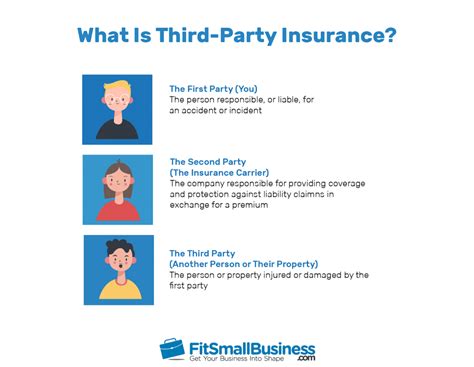Learn about the importance and key features of income protection insurance, and how to choose the right plan and file a claim. Helpful tips for understanding IP insurance.
Understanding Income Protection Insurance
Contents
Income protection insurance is a type of insurance policy that provides financial protection to individuals in case they are unable to work due to illness or injury. This type of insurance is especially important for individuals who rely on their income to support themselves and their families. With income protection insurance, policyholders can receive a regular income to cover their living expenses while they are unable to work.
One of the key features of income protection insurance is that it provides a source of income replacement when an individual is unable to work due to illness or injury. This can help alleviate financial stress and ensure that individuals can focus on their recovery without worrying about their financial obligations.
When choosing an income protection insurance policy, it is important to consider the waiting period, benefit period, and level of coverage provided. The waiting period refers to the amount of time an individual must wait before they can start receiving benefits, while the benefit period refers to the length of time the benefits are paid out. The level of coverage provided will also vary based on individual needs and preferences.
If an individual needs to file a claim for income protection insurance, they will need to provide evidence of their illness or injury, as well as any other relevant documentation. It is important to carefully review the terms and conditions of the policy to ensure that all requirements are met when filing a claim.
Importance of Income Protection Insurance
Income protection insurance is an essential financial safety net that provides peace of mind for individuals and families. In the event of an unexpected illness or injury that prevents you from working, income protection insurance ensures that you continue to receive a portion of your income. This can be crucial in helping you cover your living expenses, mortgage payments, and other financial obligations, allowing you to focus on your recovery without the added stress of financial hardship.
One of the key importance of having income protection insurance is the fact that it offers a sense of security and stability. Knowing that you have a source of income to rely on if you’re unable to work due to illness or injury can provide peace of mind for you and your loved ones. It can help you maintain your current standard of living and avoid dipping into your savings or retirement funds to make ends meet.
Additionally, income protection insurance can be especially important for individuals who are the primary breadwinners for their families. If your income is essential for covering household expenses and providing for your dependents, having a financial safety net in place can be invaluable.
Moreover, income protection insurance also offers protection for self-employed individuals and those who may not have access to sick leave or disability benefits through their employer. In these situations, having income protection insurance can provide a crucial safety net to help you navigate through challenging times.
Key Features of Income Protection Insurance
Income protection insurance is a type of insurance policy that provides a steady stream of income in the event that the policyholder is unable to work due to illness or injury. This type of insurance can provide financial security for individuals and their families during difficult times.
One key feature of income protection insurance is the ability to customize the policy to fit the individual’s specific needs. This can include choosing the waiting period before benefits begin, the length of the benefit period, and the percentage of income that will be replaced.
Another important feature of income protection insurance is the option to receive benefits for both total or partial disability. This means that even if the policyholder is able to work part-time or in a reduced capacity, they may still be eligible to receive benefits.
Some income protection insurance policies also offer additional benefits such as rehabilitation and return to work programs, which can help the policyholder to recover and return to their normal work routine as soon as possible.
It’s important to carefully review and compare the key features of different income protection insurance policies to find the one that best suits your individual needs and circumstances.
Choosing the Right Income Protection Insurance
When it comes to choosing the right income protection insurance, there are a few key factors to consider. First and foremost, it’s important to understand what exactly this type of insurance covers. Income protection insurance provides a regular income if you are unable to work due to illness or injury. This can be a lifesaver if you are the primary breadwinner in your household, as it ensures that you will still have a source of income to cover your living expenses.
Another important consideration when choosing the right income protection insurance is the waiting period. This is the amount of time you must wait after becoming unable to work before your policy starts paying out. The shorter the waiting period, the sooner you will start receiving payments, but this generally means higher premiums. You’ll need to weigh the need for immediate income versus the long-term affordability of the policy.
It’s also crucial to consider the length of the benefit period when choosing the right income protection insurance. This is the maximum amount of time that your policy will pay out for. Some policies have a benefit period of just a few years, while others will continue paying until you are able to return to work or until you retire. Choosing the right benefit period is essential to ensure that you will have the support you need for as long as necessary.
- Choose a policy that aligns with your occupation and lifestyle to ensure that you are adequately covered in case of illness or injury.
- Consider the impact of premiums on your budget and find a balance between affordability and comprehensive coverage.
- Compare policies from multiple providers to find the best value for your individual circumstances.
| Policy Provider | Waiting Period | Benefit Period |
|---|---|---|
| ABC Insurance | 30 days | 5 years |
| XYZ Insurance | 60 days | Until retirement age |
Overall, choosing the right income protection insurance requires careful consideration of your individual circumstances and needs, as well as a thorough comparison of available policies. By taking the time to research and evaluate your options, you can ensure that you have the financial protection you need in the event of illness or injury.
Filing a Claim for Income Protection Insurance
When you find yourself in a situation where you are unable to work due to an illness or injury, filing a claim for income protection insurance becomes necessary to help you financially during this difficult time. This type of insurance is designed to provide you with a replacement income if you are unable to work and earn your usual income due to a covered illness or injury.
One of the key steps in filing a claim for income protection insurance is to thoroughly review your policy documents to understand the specific requirements and guidelines for making a claim. It is important to know what is covered under your policy and what evidence you will need to provide in order to successfully file a claim.
Once you have familiarized yourself with your policy terms and requirements, the next step is to gather all necessary documentation to support your claim. This may include medical records, physician statements, and any other evidence that demonstrates your inability to work due to your illness or injury.
After you have gathered all required documentation, you can then submit your claim to your insurance provider. It is important to follow the specific filing instructions provided by your insurer to ensure that your claim is processed in a timely manner.
Upon submission of your claim, the insurance company will review the documentation provided and assess your eligibility for benefits. It is important to be thorough and honest in providing all necessary information to support your claim in order to increase the likelihood of a successful outcome.












